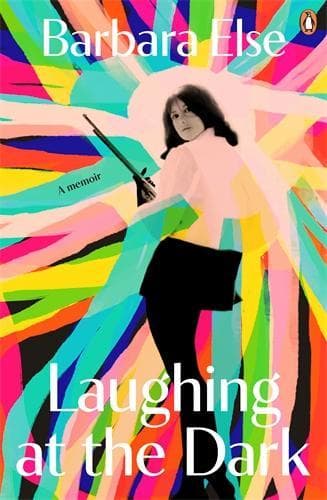Review: Laughing at the Dark: A memoir
Reviewed by Linda Herrick
The cover of Barbara Else’s memoir features a jaunty photo of her posing as The Avengers’ Emma Peel in the 1967 capping revue at Otago University. Now aged 76, Else, a multi-talented writer, editor and mentor, delivers what may be her most raw personal work, in which she takes stock of her life through the prism of cancer.
Her illness, pronounced terminal before she was offered a new, experimental drug, shapes the structure and momentum of the memoir, imbued with a sense of urgency - and gratitude that she has been given more time. It must have taken considerable steel to complete.
But first, back to the cover, so redolent of the 60s and the start of her adult life. The photo shares a rare moment of extroversion for the deeply shy Barbara Pearson, her family name. While Emma Peel, played by the glorious Diana Rigg in the TV series, embodied female power, 20-year-old Barbara was ensnared in an in-between period of socio-sexual history when women had no real control over their future. She was caught on the cusp of change.
By the time she was 21, her life was set on a familiar path. With scant sex – or emotional - education, she fell pregnant and married her medical student boyfriend Jim Neale, both of them too young. So, she became Barbara Neale, in a marriage which brought two daughters, Emma and Sarah, her ‘beacons in darkness,’ and a growing realisation that Jim, who became a self-absorbed medical academic, had no awareness of her emotional needs.
He was anti-feminist, banning the scary new magazine Broadsheet. He was deeply dismissive of her writing and held her on a tight economic leash. She never knew how much he earned. That’s the way it was done.
Despite Jim’s attitude, studying and writing thrilled and fulfilled his wife and she persisted, craving a more “useful” life. These non-domestic interests led to her meeting writer Chris Else at PEN meetings and an affair blossomed. Else left her husband (a scandal in her family) after an agonising struggle, portrayed as if it happened yesterday.
Her account of her new partnership, cemented by their marriage in 1993, is wonderfully satisfying to read because of the rare intellectual and emotional compatibility she was enjoying for the first time. Freed by this new start, Else started writing in earnest, publishing her first novel The Warrior Queen, a marital satire, in 1995. (Jim died suddenly before the book came out, a death she still recalls with great shock.)
The Warrior Queen, Else notes, made her ‘a public feminist’ in a period when women writers were emerging in strength and numbers in New Zealand literature. Since then, Else has also become a beloved children’s writer -The Travelling Restaurant is a classic - and a short story writer and editor. With Chris Else, she elevated the craft of professional manuscript assessment. After reading Alan Duff’s Once Were Warriors, they connected him with Tandem Press in 1990 after its rejection by big publishers like Penguin NZ, a historic misjudgement.
Laughing in the Dark weaves between personal and professional recollections, and its episodic style no doubt reflects Else’s levels of energy during savage periods of chemo. In balance, the most potent parts of the book are the most personal, in particular her deep drifts into early memories.
The past is still very real when she writes about the ‘blanket of silence’ thrown over sexual harassment and domestic violence, and the treatment of elderly relatives. And then there was the mundane shame routinely inflicted upon girls when they got their periods and were forced by their mothers to use enormous sanitary pads held up by a ‘strange pink elastic belt.’
It may sound trivial now – but the trauma, now she’s reminded me of it, still runs deep. Thanks for the book – and the memories, Barbara Else!
Reviewed by Linda Herrick
